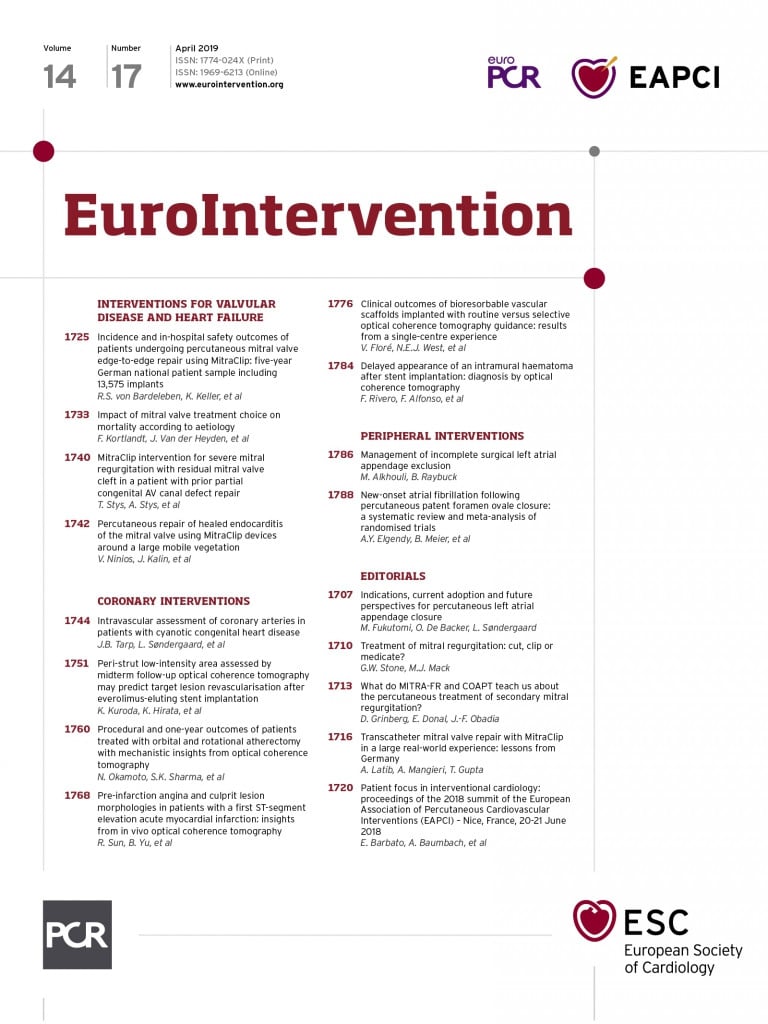
We read the article “Transcatheter aortic valve implantation versus conservative treatment in chronic kidney disease patients.” by Steinmetz et al1 with great interest. This is a “non-randomised” and “single-centre” study. The authors compared transcatheter aortic valve implantation (TAVI) to conservative medical therapy in stage 3-5 chronic kidney disease (CKD) patients. They demonstrated that TAVI is associated with improved survival at one year compared to conservative therapy. This study is of vital importance as many of the physicians are hesitant to refer advanced stage CKD patients for TAVI as the data have been conflicting in previous studies. We agree that the prevalence of CKD is very high in aortic stenosis patients undergoing TAVI and that CKD alone is an independent predictor of adverse outcomes2. Many of the previous studies have demonstrated that TAVI is associated with fewer adverse events in advanced CKD patients when compared to surgical aortic valve replacement3,4. However, we have a few concerns which need to be clarified before these results gain wider uptake.
1. The results are not accompanied by the Society of Thoracic Surgeons (STS) score or EuroSCORE II which are major determinants for a decision to perform TAVI in most cases.
2. All-cause mortality for the conservative group may not be sufficient. The authors need to include cardiovascular mortality as well.
3. How many patients were already on dialysis prior to the study? Additional information is warranted as to how many patients had acute kidney injury post TAVI and how many received dialysis post TAVI.
4. Did any patient receive TAVI or surgical repair/replacement after diagnosis of aortic stenosis in the conservative management group?
Conflict of interest statement
The authors have no conflicts of interest to declare.

